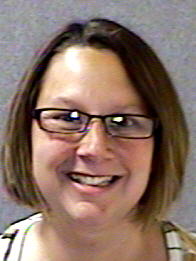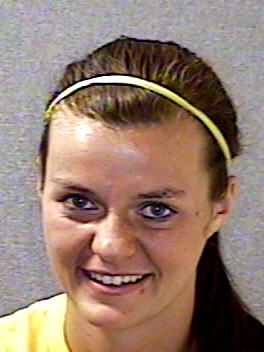Education


Department Chair
Department Support
Contact Information
Office Hours
Monday: 8:30 am - 3:00 pm
Tuesday: 8:30 am - 3:00 pm
Wednesday: 8:30 am - 3:00 pm
Thursday: 8:30 am - 3:00 pm
Friday:
Overview of Education
Muskegon Community College Education Program’s mission is to prepare future teachers, childcare providers, and education leaders of tomorrow through a commitment to a quality, well-rounded, and diverse education.
To fulfill its mission, the Muskegon Community College Education Program is committed to
- diversity, equity, inclusion, and belonging
- preparing highly qualified professionals for entry-level positions in early childhood education environment
- valuing families and community partnerships and connections
- improving the quality of lives of young children
- adhering to the NAEYC Standards and Code of Ethical Conduct
- meeting community, school, and employer’s needs.
- supporting the success of students
Fieldwork
Education: On the Job Experience
Fieldwork is an important key to linking academic theory to your career objectives.
The Education Fieldwork at Muskegon Community College is an academic program in which classroom study is combined with career-related work experience. Students who participate must meet the eligibility requirements determined by faculty within their chosen discipline of study.
A capstone fieldwork experience is completed at the end of the student’s course of study and involves extensive classroom planning and implementation. This course must be pre-approved by the Education Coordinator prior to enrollment. If you are a student inquiring about an practicum, please contact the Education Program Coordinator at 231.777.0397 or email jennifer.jones@muskegoncc.edu
All Education courses require proof of 25 hours of fieldwork. A physical, a TB test, and central registry clearance form must be submitted to the fieldwork site supervisor in order to meet state licensing guidelines. In Addison many school districts will require fingerprints prior to a practicum placement.
All students completing fieldwork need to know state licensing rules. They shall not be present in a child care center if he/she has been convicted of either of the following:
- Child abuse or child neglect.
- Any felony conviction involving harm or threatened harm that is more recent than 10 years will preclude anyone from working with children.
- Shall provide the childcare center with documentation from the Department of Human Services (Central Registry Clearance Form).
- That he/she has not been named in a central registry case as the perpetrator of child abuse or child neglect before having contact with a child in care. Michigan Licensing rules state that an attempt or conviction of any crime, felony, or misdemeanor is a lack of good moral character. Pre-service teachers shouldn’t have any offenses evidencing lack of good moral character.
Scholarship Information
Are You Interested in Scholarships for Early Childhood College Courses?
If you are currently working with children in a licensed center/group home, a registered family home or can answer YES to all of the following questions you may be eligible to receive a scholarship from T.E.A.C.H. Early Childhood MICHIGAN.
Are you eligible?
• Do you work in a registered or licensed child care facility?
• Do you work at least 20 hours per week?
• Are you committed to remaining in the Early Childhood field?
• Are you enrolled in the Early Childhood program at your local community college or would you like to be?
• Are you willing to make a commitment to continue working at your present place of employment for one year?
Types of Scholarships available:
- CDA Assessment
- Part Time Associate
- Associate Degree
- Bachelor Degree
Scholarships Include:
- The majority of costs for tuition, fees, and books
- A stipend for travel and release time
- Cash Bonus
- For more information or an application click here
- Please visit MCC’s Scholarship Page for more scholarship opportunities.
Michigan Licensing Rules
Michigan Licensing Rules
| R 400.5102(2(b) |
|---|
| Licensee. |
| (2) The licensee shall have the following administrative responsibilities regarding staff: (b) Perform a criminal history check using the Michigan department of state police’s internet criminal history access tool (ICHAT) before making an offer of employment to a person. |
| R 400.5102(2)(e) |
|---|
| Licensee. |
| (2) The licensee shall have the following administrative responsibilities regarding staff: (e) Have a written statement signed and dated by staff at the time of hiring indicating all of the following information: (i) The individual is aware that abuse and neglect of children is against the law. (ii) The individual has been informed of the center’s policies on child abuse and neglect. (iii) The individual knows that caregivers are required by law to immediately report suspected abuse and neglect to children’s protective services. |
| R 400.5102a(3) |
|---|
| Staff training requirements. |
| (3) The licensee shall assure that within 6 months of initial hire each caregiver completes blood-borne pathogen training. |
| R 400.5104(3) |
|---|
| Staff. |
| (3) A staff member shall provide the child care center with documentation from the department of human services that he or she has not been named in a central registry case as the perpetrator of child abuse or child neglect before having contact with a child in care. |
| R 400.5104b(1) |
|---|
| Health of staff and volunteers; report. |
| (1) The center shall have on file a report, signed by a licensed physician, for each staff member and each volunteer who has contact with children at least 4 hours per week for more than 2 consecutive weeks. This report shall declare, to the best of the physician’s knowledge, the physical capability of the staff member or volunteer to perform the duties required. The report shall be signed not more than 6 months before, or 30 days after, the start of employment. |
| R 400.5104b(2) |
|---|
| Health of staff and volunteers; report. |
| (2) The center shall have on file evidence that each staff member and each volunteer who has contact with children at least 4 hours per week for more than 2 consecutive weeks is free from communicable tuberculosis, verified within 1 year before employment. |
| State of Michigan Requirements |
|---|
| Link To Michigan Requirements |
| Only owners, licensees, or licensee designees and program directors have to be fingerprinted. All public or private school employees have to be fingerprinted, but that is not a licensing requirement. Any felony conviction involving harm or threatened harm that is more recent than 10 years will preclude anyone from working with children. These convictions should be picked up by ICHAT. |
NAEYC
Accreditation
The Associate in Science and Arts in Early Childhood Education at Muskegon Community College is accredited by the Commission on the Accreditation of Early Childhood Programs of the National Association for the Education of Young Children, www.naeyc.org. The accreditation term runs from April 2022-April 2024.
Click here to view Early Childhood Program Outcome Data
Click here to view Student Learning Objectives for the Program
Related Resources
Related Resources
NAEYC https://www.naeyc.org/
MiAEYC https://miaeyc.org/
T.E.A.C.H. https://miaeyc.org/t-e-a-c-h-scholarships/
State of Michigan (MiLEAP) https://www.michigan.gov/mileap
Areas of Study
Related Degrees
Faculty & Staff
FAQs



What career opportunities are available to me?
Work sites include child-family oriented settings such as childcare agencies, preschools, Head Start programs, daycare homes, recreation centers, and elementary schools. These programs may serve infants, toddlers, preschool and school age children and families. Positions available to graduates of MCC’s Education Certificate programs include:
- Program Director or Assistant
- Preschool Lead Teacher
- Infant-Toddler Supervisor
- Family Daycare Provider
- Home Daycare Provider
- Head Start Teacher*
- Michigan School-Age Credential
- Instructional Assistant–Special Education
*Washington has established a new requirement of an ASA Degree



Why train in MCC’s education certificate programs?
Education Certificate programs are short-term training programs which prepare people to work with children and families. Professionals in this field provide experiences and interactions that promote safe, healthy learning environments for children, and assistance for families. In an age when an increasing number of parents are working outside the home, finding an environment in which children will receive more than basic maintenance has grown in importance. Families, too, need assistance as they struggle to cope with jobs and home responsibilities. Thus the need for professional childcare and paraprofessional workers has become essential.



Why is an MCC education certificate for me?
MCC’s Education Certificate Programs provide:
- Courses that meet the requirements for MCC’s ASA degree in Early Childhood Education or may transfer to a four-year college to meet bachelor’s requirements*
- Competency-based professional preparation for students interested in positions involving caring for children and families
- Individualized guidance throughout the learning process with advisors who care about your success
- The opportunity to work at your own pace to complete training
- Consideration of prior work experience and completed academic coursework when programs are planned
*Those intending to transfer should check with the four-year college or university requirements.



What are my career options?
- Train for one of the Nationally Certified CDA’s as a Center-Based Preschool Teacher
- Train for an Elementary School Classroom Aide or Special Education Assistant
- Complete an ASA Degree with an emphasis in Early Childhood Education
- Use your training as a stepping-stone to a four-year degree (check with the transferring institution for requirements)



What would I expect to learn?
You will gain knowledge, skills, and abilities in the following areas:
- Physical, cognitive, language, social, emotional development of children and adolescents
- The importance of play, and the role of play in development
- Role of family, society and culture in development
- Family dynamics and interactions
- Special needs of children and families
- Children’s literature
- Quality standards of programs for children
- Professional obligations, responsibilities, and ethical standards
- Business aspects of early childhood programs
- Developmentally appropriate practices
- Positive communication and relationships in adult-child orientations
- Observation, record keeping and assessment of self, children and families
- Management of safe, healthy, learning environments
- Problem solving, teamwork



What are the certificates offered by the education department?
- Associate in Applied Science Degree (A.A.S.)
- Associate in Science and Arts Degree (A.S.A.)
- Child Development Associate Preschool Certificate
- CDA Family Day Care Certificate
- CDA Infant-Toddler Certificate
- MCC Teacher Aide / Paraprofessional Credential
- MCC Instructional Assistant – Special Education Certificate



What practical experience will I receive?
You will gain experience in:
- Working with children and families
- Working with diverse populations
- Working in a relevant worksite
- Planning, organizing and participating in age-appropriate activities
- Leading and managing children
- Guiding and assisting families
- Helping and supporting teachers



Are there jobs available?
In a word — YES!! Society is relying more and more not just on childcare, but parents are demanding quality childcare. This means trained professional providers with knowledge of developmentally, age-appropriate practices, and quality standards.
The following information was taken from the 2008-09 Edition of the Occupational Outlook Handbook from the Bureau of Labor Statistics.
Child Care Workers Job Outlook
Child care workers are expected to experience job growth that is faster than the average for all occupations. Job prospects will be excellent because of the many workers who leave and need to be replaced.
Employment change. Employment of child care workers is projected to increase by 18 percent between 2006 and 2016, which is faster than the average for all occupations. Child care workers will have a very large number of new jobs arise, almost 248,000 over the projections decade.
Job prospects. High replacement needs should create good job opportunities for child care workers. Qualified people interested in this work should have little trouble finding and keeping a job. Many childcare workers must be replaced yearly as they leave the occupation to fulfill family responsibilities, study, or other reasons. Others leave because they are interested in pursuing other occupations.
Teacher Aides and Assistants Job Outlook
Many job openings are expected for teacher aides and assistants due to turnover employment growth in this large occupation, resulting in favorable job prospects.
Employment change. Employment of teacher aides and assistants are expected to grow by 10 percent between 2006 and 2016 per the projections data from the National Employment Matrix.
Job prospects. Favorable job prospects are expected. Opportunities for teacher aides and assistant jobs should be best for those with at least 2 years of formal postsecondary education, those with experience in helping special education students, or those who can speak a foreign language. Demand is expected to vary by region of the country. Regions in which the population and school enrollments are expected to grow faster, such as many communities in the South and West, should have rapid growth in the demand for teacher aides and assistants.
Teachers – Preschool, Kindergarten, Elementary, Middle and Secondary Job Outlook
Employment of preschool, kindergarten, elementary, middle, and secondary school teachers is projected to grow about as fast as average. Job prospects are expected to be favorable, with particularly good prospects for teachers in high-demand fields like math, science, and bilingual education, or in less desirable urban or rural school districts.
Employment change. Employment of school teachers is expected to grow by 12 percent between 2006 and 2016.
Job prospects. Job opportunities for teachers over the next 10 years will vary from good to excellent, depending on the locality, grade level, and subject taught. Most job openings will result from the need to replace the large number of teachers who are expected to retire over the 2006-2016 period. Also, many beginning teachers decide to leave teaching for other careers after a year or two.











